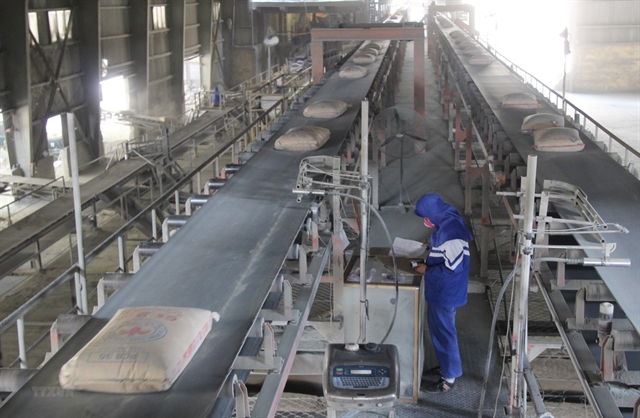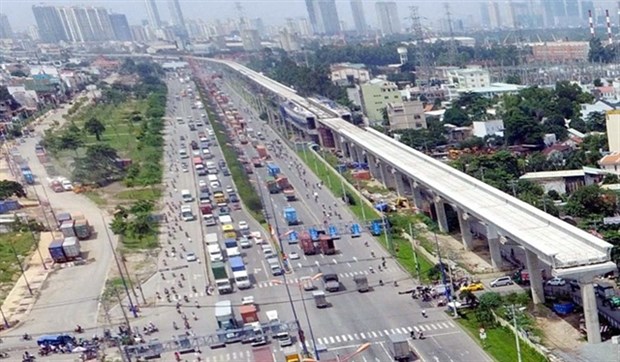
HÀ NỘI – Maintaining exports would be critical for the cement industry amid rising production output and anticipated sluggish domestic sales this year.
According to Nguyễn Quang Cung, President of the Việt Nam Cement Association, two new cement projects would go into operation this year, one in Tân Thắng Commune, the central province of Nghệ An with a capacity of 2-2.5 million tonnes per year, and one in Bỉm Sơn Commune, Thanh Hóa Province with a capacity of 4.6 million tonnes.
This would give the domestic cement industry total production capacity of more than 100 million tonnes, while local demand was estimated at around 70 million tonnes.
“Maintaining exports would be critical for the cement industry this year,” Cung said.
The Ministry of Construction forecast that cement sales would increase by around five per cent to reach 103 million tonnes in 2020, around 70 million tonnes of which would be sold to the domestic market.
According to Cung, domestic cement sales were anticipated to remain sluggish this year due to stagnant construction of infrastructure projects and the slowdown of the property market.
The association also predicted a five per cent growth rate for the cement industry in 2020.
Regarding exports, Cung said that cement export volume would be around 34 million tonnes this year but fall to 25 million tonnes in 2021.
“The lower cement export forecast in 2021 is based on expectation that domestic sales would increase,” Cung said, adding that reducing cement exports would be important in the long run because of the Government’s policy not to encourage exports of fully processed resources.
To cope with increasing pressure, Cung said cement producers should apply advanced technologies in production to enhance quality and added value while reducing environmental production, which would significantly help boost competitiveness.
Vietnamese cement was also facing rising pressure in international markets due to increasing production in China and Thailand, according to the ministry.
The ministry urged domestic firms to monitor the cement market and adjust their production plans accordingly to keep prices from falling. In addition, cement firms should also work out long-term development strategies.
FiinGroup predicted that cement demand would increase by around five per cent per year till 2030. An excess of supply over demand would continue until a balance was reached in 2028, the company forecast.
Statistics from the Import-Export Department under the Ministry of Industry and Trade showed that cement sales reached more than 99 million tonnes in 2019, up two per cent over 2018. Domestic sales accounted for 66 million tonnes.
Nearly 34 million tonnes were exported last year for nearly US$1.4 billion, $148 million higher than in 2018 and a record high. It was the second consecutive year Việt Nam saw cement exports to hit a new record. - VNS





























